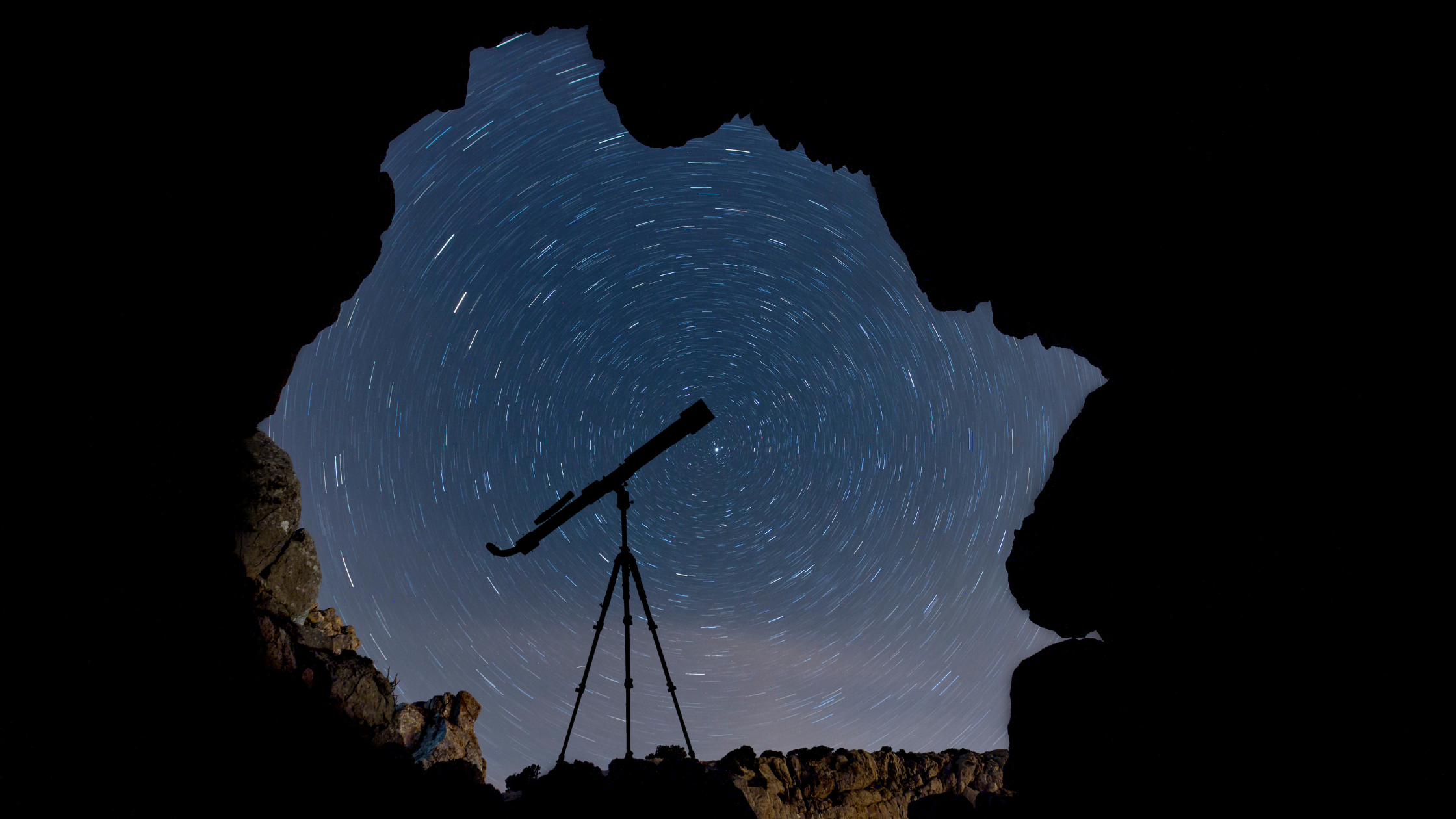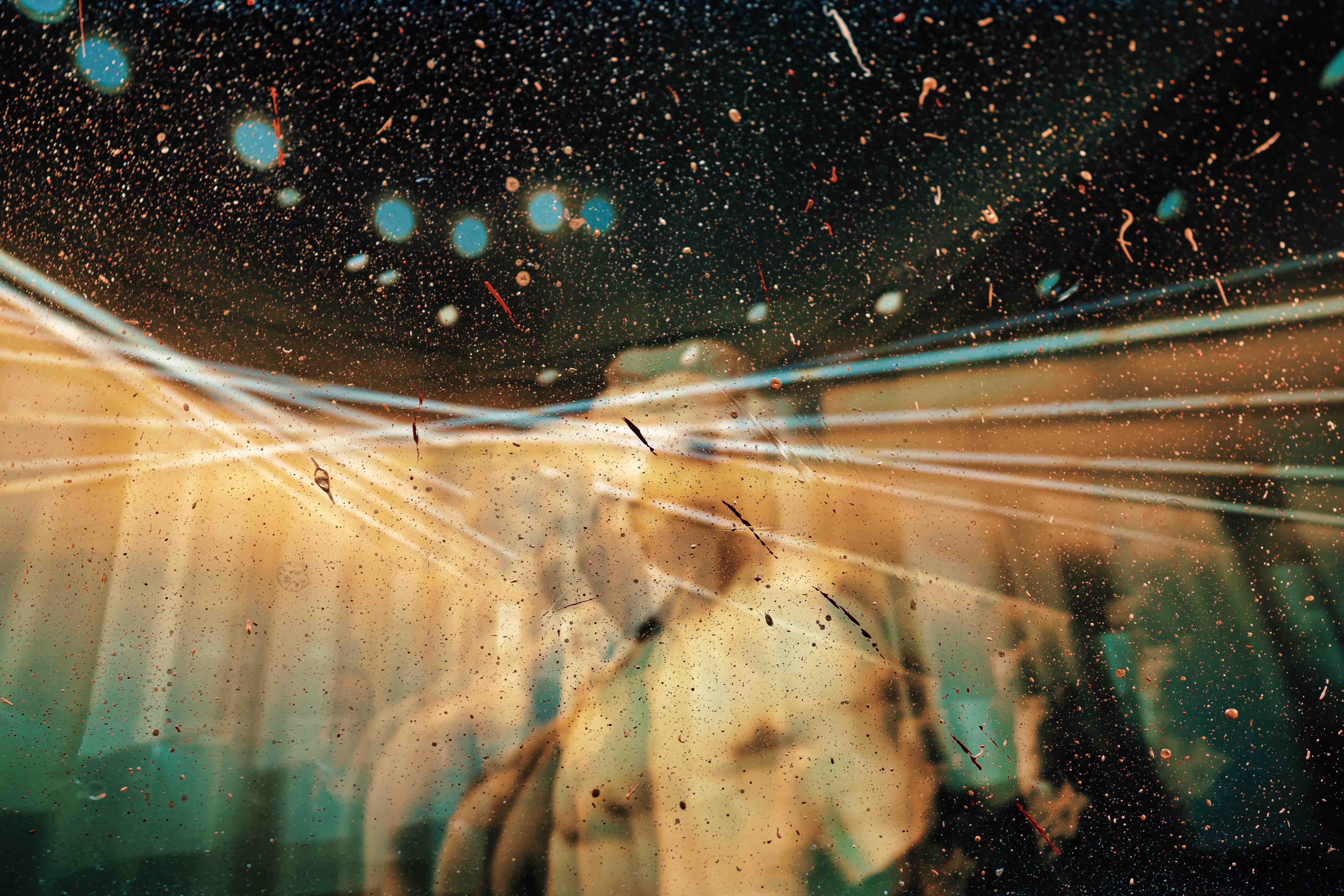If you talk about psychedelics for long enough, you’ll come across a discussion on the topic of the “mystical experience.”
Many people who take psychedelics report experiences that are hard for them to describe. “Otherworldly,” “Spiritual,” “Transcendent,” are just some of the phrases you might hear. An umbrella term for the profound personal revelations that someone might encounter during a psychedelic trip is “Mystical.”
Research into the psychedelic experience has shown that their mystical effects can be profound and meaningful.
In one study where participants were given a single dose of a powerful psychedelic, over half of them reported is as “among the top five most spiritually significant experiences” of their lives. Their reports of the quality of the experience scored highly on the Mysticism Scale, a test designed to empirically determine the power of any mystical experience, psychedelic or sober.
The mystical experience induced by psychedelics not only has profound personal relevance, but could also be clinically useful. In studies that administered psilocybin (the active ingredient in magic truffles, provided at the Synthesis retreat) for the treatment of depression and tobacco addiction, participants who reported the most profound mystical experiences also showed the greatest reductions in symptoms.
But the mystical experience is not exclusive to those who take psychedelic substances. People have been witness to mystical experiences, and actively fostering them, for almost as long as recorded history.
So what is a mystical experience, how does it connect to spirituality, and what pursuits can bring about a spiritual awakening?
The Mystical Experience
Mystical experiences have been the cornerstone of religious and spiritual practices for millennia. From early Christian mysticism to Zen Buddhism, almost every religious path allows space for experiences that give a more direct connection to the more mysterious aspects of reality. Secular practices such as meditation, yoga, and being in nature, can also produce mystical experiences, and people who encounter mystical experiences often find them to be life-changing and positive.
WHAT IS A MYSTICAL EXPERIENCE?
Broadly speaking, a mystical experience is anything that is hard to comprehend or describe with rational or simple language. Generally, it is short-lasting, feels immensely meaningful or profound, and shatters some of your preconceptions. You may encounter paradoxical or alien concepts firsthand, such as non-duality; a realization that nothing in the universe is truly separate, or impermanence; an awareness that pretty much everything is temporary.
Mystical experiences can occur spontaneously, and indeed people report them occurring at completely unexpected times – such as during sports (Parry et al, 2007), during or after sex (Wade, 2004), and as a result of interactions with wild animals (DeMares & Krycka, 1998).

In spontaneous mystical experiences, profound realisations can hit people without warning. Often, people will report the feeling as if being transported into another realm, where both perceptions and thoughts have an unusual clarity or brightness.
People often describe the spontaneous mystical experience as being life-changing: and this is especially true of those who encounter the mystical during near-death experiences (NDEs). Mystical experiences during NDEs often take the form of leaving the physical body, meeting deities, or reliving important parts of your life (Greyson, 1983).
Non-spontaneous mystical experiences can be induced by certain religious or secular practices (such as meditation), or the ingestion of substances like psychedelics.
Here’s one example of a typical report of a mystical experience, triggered by a disciplined meditation practice:
“I was enveloped in a love I could not put into words. This divine love was in everything and in me. At the core of my being, I was this love and so was everyone else. In this state of grace, there was no right or wrong, no good or bad, and no judgment whatsoever. Fear was non-existent. There was no death and I knew that we all live forever. Everyone I met was love. [...] I became aware that a presence other than what I usually think of as myself was looking through my eyes. I had become one with this infinite awareness that simply sees without judgement. It is the very essence of life, eternal life. I wanted nothing, nor did I needed anything.” - Retrieved from this link at the Near-Death Experience Research Foundation)
MYSTICAL EXPERIENCES IN RELIGION
Although mystical experiences can be spontaneous, or the result of secular practice, a large portion of mystical experiences probably occur as the result of religious practice. Most religions have space for mystical experiences in their teachings; although to different degrees.
.jpg?width=800&name=claudia-van-zyl-QjG2jg-sKDk-unsplash%20(1).jpg)
Most forms of modern-day Christianity, for example, have lost almost all aspects of mysticism – now, most of their focus is on ritual and biblical study. Yet in the earliest days of Christianity, the mystical experience was key. The bible describes early priests undertaking divination using psychoactive substances in holy buildings known as Tabernacles. These priests would then guide their congregation as a result of the epiphanies granted to them through these mystical experiences. For more on this, see this series of talks by biblical scholar Rev. Danny Nemu.
Christian mysticism further developed into a more structured discipline, with practitioners following a threefold path of mystical awakening (McColman, 2010). These three steps were purification (discipline of the body), illumination (discipline of the mind), and unification (developing the spirit). Throughout this threefold path, Christians were expected to come closer to mystical experiences, ultimately transforming them into a state more similar to God. This would likely be through the development of transcendent prayer practices and mystic contemplation, somewhat similar to meditation.
Mysticism began to decline as an aspect of Christianity once a strong hierarchy emerged in the church. The Protestant Reformations in the sixteenth century began the persecution and marginalization of mysticism in Christianity (especially Catholicism and Protestantism). This largely prevented mystics from having a say on the interpretation of scripture and the application of divine knowledge (McColman, 2010).
Modern Judaism, having the same roots in mysticism as Christianity, also has mystical elements to its teachings. The Kabbalah school is the most well-known form of Jewish mysticism currently. It considers the mystical experience a route to God, and encourages the fostering of a relationship to the infinite aspects of reality (Dan, 2005). Although much of Kabbalah is based in reading and interpreting texts and traditions, it also encourages mystical or transcendent experiences, and the union with God that these experiences can produce.
In Hinduism, the modern religious tradition (called Neo-Vedanta) emphasizes the mystical experience as a core part of religious practice. Whereas older traditions put more importance in the study of scripture, modern Hinduism tends to put this as a secondary concern, instead focussing on personal experiences of the mystical (Rambachan 1991). Central to this is a cultivation of an awareness of the non-dual nature of reality, the paradoxical nature of the Supreme Being, and an appreciation for the deceptive nature of our everyday perceptions.
Although in Islam the core teachings state that a true appreciation of God can only be found in the afterlife, the Sufi branch suggests that a closeness to God can be achieved in life through mystical experiences. However, even in Sufism, the study of scripture has to precede any truly direct experiences of God. Mystics have to follow a strict path of scripture study and practices before they can fully appreciate the universality of God through mystical states. In an exciting contemporary development on this front, in mid-March 2014, Iran’s top religious leader, the Grand Ayatollah Rohani ruled the use of entheogenic drugs permissible (ḥalāl), for Muslims under traditional Islamic law, as long as they are taken with specialized supervision, and with a mystical mindset. (For more information, see this interview with the esoteric Islamic scholar Wahid Azal.)
Buddhism, perhaps more than other modern religion, incorporates mystical experiences into its teachings. The awakening of the Buddha, which is the route of all teachings and scripture in Buddhism, was itself a mystical experience – perhaps the pinnacle of mystical experiences. Meditation practice is considered a component of fostering this mystical awareness.
Different schools of Buddhism emphasize meditation to varying degrees, although all consider that personal mystical and spiritual experiences are key to understanding the core tenets of the religion. Zen Buddhism, for example, takes meditation as its primary practice, and suggests that by “just sitting” (alongside some study of cryptic poetic scripture known as koans) the mystical experience is cultivated, allowing a direct glimpse of the core truths of Buddhism (Ford 2018).
According to some religious scholars, there are many similarities in the way that mystical experiences are approached by the world’s religions. This has led to some to suggest that a “Perennial Philosophy” is at work here, where religions that share an interest in the mystical experience also express similar morals and principles. This concept is expressed in most depth in Aldous Huxley’s famous work “The Perennial Philosophy” from 1944.
The Spiritual Experience
A spiritual experience is in many ways a branch of the mystical experience, and can be seen as a more specific experience involving the individual’s “spirit” or “soul.” Whereas mystical experiences can involve wider concepts such as nature or universal reality, spiritual experiences may involve a connection to some kind of divine being, and could have a religious element.
.jpg?width=800&name=simon-rae-IGOBsR93I7Y-unsplash%20(1).jpg)
Spiritual experiences are almost always life-affirming, joyous, and beautiful.
Here are some examples of spiritual experience reports, showing how the spiritual experience is a form of mystical experience with more of a focus on the individual:
“Right above me, [...] there was a gigantic mass of luminous consciousness. Just as the Buddha described it. Huge. It was like an ocean but above, sort of upside down. A sea of pure consciousness, nothing but consciousness, just as Kabir had also described it. It started up and continued upwards, I did not see its end neither side wise nor upwards, I could only see its beginning above me. [...] I felt as if a magnet attracted me very quickly towards the mass of luminous consciousness that I immediately recognized as God. Then I realized that 'it'... was actually me! I was like a droplet of that gigantic mass of consciousness but in reality I was also that huge consciousness, the luminous consciousness. I, little drop of consciousness, now free from the illusion, returned to where I have always belonged: to the huge Ocean of Luminous Consciousness whom we call God. I saw myself, I felt myself, I existed as and I knew myself to be God.” - Source, during meditation practice.
“I was sobbing, overcome by the sheer amount of love that swept through me and over me, and laughing at the same time. It was then that I asked God why there had been so much pain in my life, and where had he been while I was suffering and so afraid? He then told me to hold his hand while he showed me something. [...] As God held my hand I could see great chunks of memories, many of which I had repressed, as they were so painful, come floating up in front of me.” - Source, from a near-death experience.
“I was still chugging along on my [motorbike] at 10 - 15 km/hour when, seemingly for a fraction of a second, everything around me went completely black. The world as I had seen it up to then had totally disappeared. Then, suddenly, I emerged into a Sublime White Light, a new state of consciousness, a new state of being where everything was Perfect Light, Perfect Unity, Perfect Life. Human forms, nature, trees, plants, animals and stones were, in truth, Light. Their shapes were still there but were no longer living by themselves. They were a manifestation of Life and of the Eternal and Universal Light that animates all things. Everything was now bathed in Perfect Light, Life, Harmony and Unity. And I gradually became aware of the fact that I, too, as a physical body, a human being, was a manifestation and expression of this Life and Infinite Light. But I was also infinitely more than this mortal body, this little human personality. I was Soul or Divine fragment. I was also this Light, this infinite Life. I was the life of all Lives. I was the other human being, nature, the animal, the tree, the flower, the blade of grass, the grain of sand, the stone, the mountain, the ocean, the stars in the universe, the whole universe and much more besides. I was Infinite, Unlimited.” - Source, the result of a spontaneous experience.
“I was aware of being combined with all the other thoughts or shapeless and infinite souls of every person or creature who has ever lived or died, or been, or is, those waiting to be born and those who have already lived and died. I was aware of suddenly having infinite knowledge. [...] I was one with the Creator and with Creation itself. I was the Creator. We all were; those who haven't come back still are. [...] I was aware that my earthly body, my container or vessel of my soul had been shed, and I was so much more. I knew all things. I was God along with everyone else, and yet God was still there in superior existence, too: A universal power that was gentle and kind, humble and pure.” - Source, from a near-death experience.
A Spiritual Awakening
A spiritual awakening is the feeling of realization or awareness that a person gains after a mystical or spiritual experience. It could also be called spiritual enlightenment, in a more religious context.
Basically, it is the ultimate awareness of some divine truth about yourself or reality. It is in many ways the peak of spirituality and mysticism.
Here is an account of spiritual awakening from William Wilson, the founder of Alcoholics Anonymous – an organization that considers a spiritual awakening to be the last step that frees sufferers from addiction:
“Suddenly the room lit up with a great white light. I was caught up into an ecstasy which there are no words to describe. It seemed to me, in the mind’s eye, that I was on a mountain and that a wind not of air but of spirit was blowing. And then it burst upon me that I was a free man. Slowly the ecstasy subsided. I lay on the bed, but now for a time I was in another world, a new world of consciousness. All about me and through me there was a wonderful feeling of Presence, and I thought to myself, ‘So this is the God of the preachers!’ A great peace stole over me and I thought, ‘No matter how wrong things seem to be, they are all right.’” (From Miller, 2004)
A spiritual awakening will leave you feeling like you know what changes you need to make to your life, or what your true purpose is.
However, just because you’ve had a mystical or spiritual experience doesn’t mean that you will necessarily have a spiritual awakening. It often requires some form of religious or secular practice to train mindfulness and self-awareness, to allow you to appreciate the mystical or spiritual experience to its fullest.
HOW TO ACHIEVE A SPIRITUAL AWAKENING
There are various ways to achieve a mystical experience, which then has the potential to provoke a spiritual awakening within you.
Becoming involved with a religious practice is one route. Joining your local Buddhist center is a good way of starting a religious practice, as you do not need to know any scripture (or even learn any as part of your practice!).
Religion is not for everyone, however. There are many secular routes into developing a mystical experience. Secular spiritual practices can be found everywhere. These may include sound baths, chanting circles, men’s or women’s groups, or non-religious meditation meetups. Any of these have the potential to produce a mystical experience.
Activities that you can perform on your own have the potential to provoke a mystical experience. These may include exercise, yoga, spending time in nature, gardening – basically any focussed activity that allows you to remove yourself from the normal rhythms of life.
Finally, psychedelics can be a route to the mystical, if used in the correct way.
Once you’ve engaged in a practice for long enough to have a mystical or spiritual experience, there’s no guarantee that it will result in a spiritual awakening. Sometimes, you may be left with the memory of a deeply profound experience, but with no idea of how to integrate it, or unsure of the meaning you can take from it.
WHY DOES A SPIRITUAL AWAKENING HAPPEN?
There is no simple formula to make sure your mystical experience results in a spiritual awakening, but we know there are some factors that make a spiritual awakening more likely.

People who have been practicing techniques like meditation and mindfulness are more prepared for the spiritual awakening process. The introspection and awareness that these (and similar) practices can develop are important for being able to fully absorb the otherworldly nature of a mystical experience.
Religious practice could also be useful, although one study has shown that a religious background or practice does not make a mystical experience more likely – but does make it more likely to be interpreted in a religious framework (Granquist & Larsson, 2006).
Having a clear idea of what you’re searching for is generally a good sign that a spiritual awakening is on the cards after a mystical experience. This could mean goal-oriented meditation, or mantra practice. However, it could also mean that someone who has been suffering from a mental health condition, and has been seeking healing, is especially prepared to interpret a spiritual awakening. This is apparent in accounts of spiritual awakenings, where many of the reports come from people who had reached a point of desperation or peril.
HOW LONG DOES A SPIRITUAL AWAKENING LAST?
A spiritual awakening is not the same as the mystical experience. Although the experience may be momentary, or only last a few minutes (or perhaps hours in the case of psychedelics), a spiritual awakening could be a process lasting many years. It involves the incorporation of the lessons from a mystical experience into your life, and may include more than one mystical experience, and several stages of learning and practice.
WHAT DOES A SPIRITUAL AWAKENING FEEL LIKE?
Most people report an initial dawning realization – often described as like re-learning a truth that has been forgotten for a long time. This truth is existential in nature, and could concern the connection that all living things share, or the purpose that you specifically have in the grand scheme of things.
This first realization is then accompanied by an understanding of the next steps you need to take in life in order to honor this truth you have encountered. It could take years to implement everything you’ve learned from the awakening, and you may find yourself going through many different steps in the spiritual awakening process.
WHAT HAPPENS AFTER A SPIRITUAL AWAKENING?
Allowing the lessons from a spiritual awakening to permeate into your life is not necessarily easy. Hopefully, you can find a way to incorporate your awakening into your spiritual or secular practices, such as meditation or prayer. Set aside at least some time in your daily routine to revisit the experience you have had, and remind yourself of the meaning you have derived from it. Journaling is useful – as is being part of a group where you can discuss your experiences together.
A Psychedelic Awakening
Here at the Synthesis retreat, we curate an environment that is designed to maximize the chances of a mystical experience, and foster an awakening as a result. This involves some meditation, breathwork, and introspection – but ultimately centers around a dose of a psychedelic substance.
We know that psychedelics are capable of inducing a mystical experience, and are therefore a potential means to achieve a spiritual awakening. However, we know that psychedelics are not a “one-and-done” solution to inducing a mystical experience – and so we use all of our knowledge about mystical and spiritual practices to make sure that all our participants are primed for a meaningful and profound journey.
To learn more about the research that has helped craft the Synthesis environment, click here. Or, to sign-up to a retreat and have your own spiritual experience, click here.












